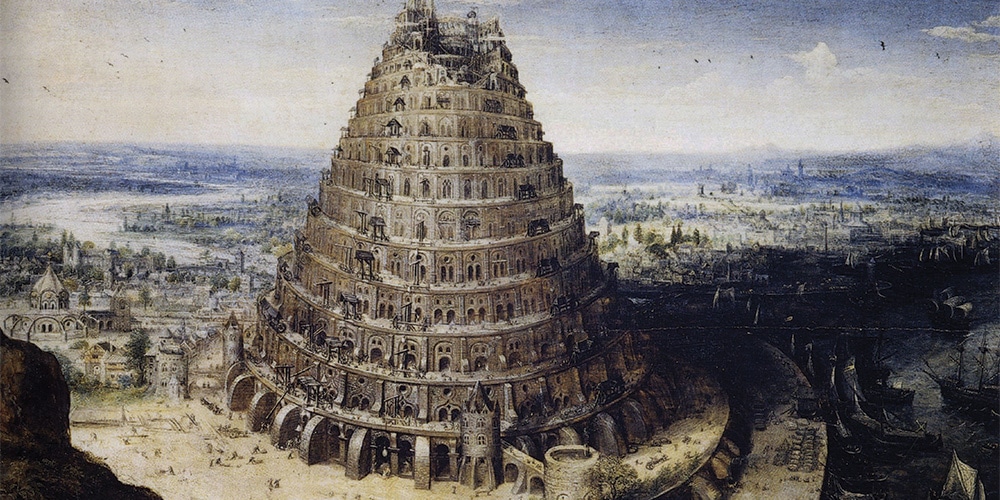
The age of modernism with its perception of absolute truth is no more. The complexity of the modern age may well be understood for an ethic that espoused an individualistic pursuit of naturalistic truth. Modernism instilled a confidence in the power of one’s mind to harness the potential of nature through scientific observation. Science was the harbinger of certainty. With science in your corner, you could be sure of what you knew and take full control of your destiny.
While the emphasis on the scientific method as the premier means of knowing anything for certain posed its challenges to religion, the general ethos of epistemological certainty resulted in an emphatic, if not dogmatic, religious experience. No doubt Paul’s statement would have resonated deeply with modern Christians: “I know whom I have believed, and am persuaded that he is able to keep that which I have committed unto him against that day” (2 Tim. 1:12).1
But modernity faced the same challenge faced by the builders of the Tower of Babel: much reliance on “I,” on human autonomy. “Let us make brick, and burn them thoroughly. . . . Let us build us a city and a tower, whose top may reach unto heaven; and let us make us a name” (Gen. 11:3, 4). Through their engineering prowess atheists, agnostics, and rebellious believers alike united to find—in the clouds—the natural causes of the global deluge and safety against another flood.
Such a state of confusion is to be expected in a world which is anti-God, but Christ’s followers ought not to be confused.
But what happens when the reality of human limitation hits? In the case of the Babel builders, divinity intervened to confound their efforts. But for those of us who live in modern times, the devastation of World War II raised a myriad of existential questions concerning humanity’s ability to independently forge a bright future. When self-sufficiency proved futile, the modern age turned to postmodernity, with its ethos of uncertainty and fear. Deconstruction, pluralism, political correctness, and contemporaneity are considered of value—in short, it is fashionable and palatable, not to know.
Whereas confusion denotes a sense of disorientation, confusion is one of the markers of postmodernism. Not surprisingly, atheism and agnosticism are on the rise. “About a third of older millennials [adults currently in their late 20s and early 30s] now say they have no religion. . . . Nearly a quarter of Generation Xers now say they have no particular religion or describe themselves as atheists or agnostics.”2 Christian churches are closing. Many who still call themselves Christian are comfortable in their uncertainty of the biblical account of Creation, the Flood, Christ’s miracles, and His prophecies. Disappointed by clergy indiscretions, specifically where racism, sexism, and Western hegemony seem to prevail, postmodern Christians lack the confidence that undergirds enthusiastic evangelism.
Postmodernity faces the same challenge as modernity and the builders of Babel—this ardent regard for “I.” From looking at self as sufficient, postmodernism swings to looking at things self-deprecatingly. Either way, self is the focus.
In Eden the serpent convinced Eve to remove her focus from God’s Word and trust her own senses. Confusion ensued. Instead of seeking God’s presence (Ps. 63), Adam and Eve “hid themselves from the presence of the Lord God” (Gen. 3:8). Rather than finding “fulness of joy” in God’s presence (Ps. 16:11), they were afraid (Gen. 3:10). Adam blamed Eve for his decision (verse 12). Eve sought absolution by blaming an animal (verse 13).
Adam and Eve’s confusion was a result of their rejection of truth. They indulged in that which God had forbidden and brought woe upon themselves. They treated God’s good as evil, and the tempter’s evil as good: “Woe unto them” (Isa. 5:20).
Christ’s followers ought not to be confused. Yet if the foundation of confusion is rejecting truth, then Christianity today is riddled with confusion. From Roman Catholicism’s outright assertion of tradition above Scripture to Protestantism’s failure to protest, Babylon is an apt descriptor of the state of Christianity.
No wonder the call goes out: “Come out of her, my people, that ye be not partakers of her sins, and that ye receive not of her plagues” (Rev. 18:4). God calls His people out from a Christianity that rejects truth.
When Adam and Eve rejected God’s Word as true they rejected God Himself. Did not Jesus say, “I am the way, the truth, and the life” (John 14:6)? To reject the truths revealed in God’s Word is to reject the God who has revealed them. And to reject a relationship with the Jesus of whom the Scriptures testify is likewise a fallacy (cf. John 5:39).
Those who perish in the end are those who “received not the love of the truth” (2 Thess. 2:10).
Modern Christianity may have espoused absolute truth, but to the extent that the truths it touted stood on the platform of humanity’s reasoning abilities, it totally missed Jesus, who is truth. Likewise, if postmodern Christianity’s self-deprecation obscures the view of a merciful Savior, it is confused when it says it is following Jesus. Today, to avoid all confusion, God calls us to take our eyes off of self and turn them upon Jesus.
Sikhu Daco is a senior editorial assistant in the Sabbath School and Personal Ministries Department of the General Conference.